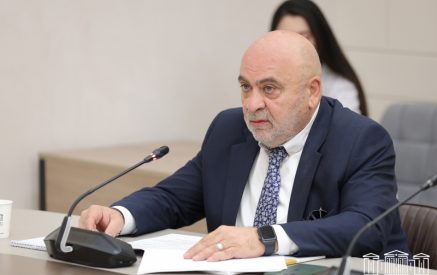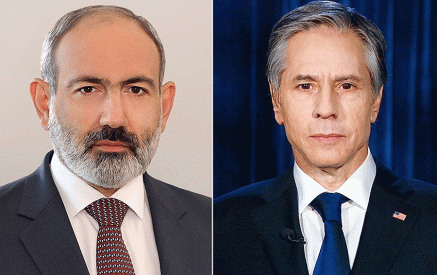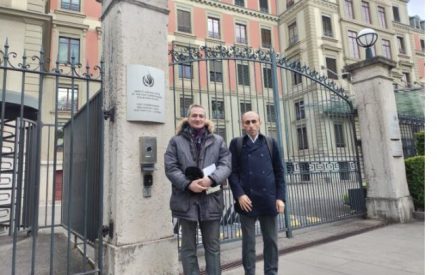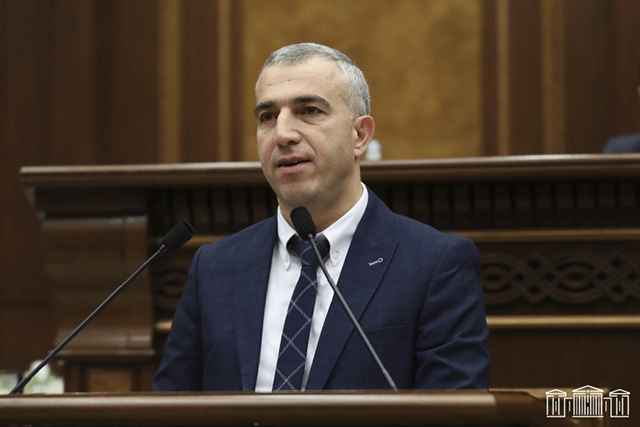Statement on the International Day against Corruption
Twenty years ago, on October 31, 2003, the United Nations General Assembly adopted the Convention against Corruption by its resolution 58/4 and declared December 9 as the International Anticorruption Day[1].
2023 also marks the 20th anniversary of the fight against corruption in the Republic of Armenia, since the first anticorruption strategy and the program of measures for its implementation came into force on December 20, 2003[2].
Read also
Over the past two decades, Armenia has developed and implemented four anticorruption strategies along with corresponding action plans. The country has joined international anticorruption conventions undertaking numerous commitments. The anticorruption policy conducted by the state has been highly ineffective, sometimes imitative in nature, and was mainly aimed at the implementation of preventive measures, adoption of laws, and creation of ethics commissions. A significant portion of the legislative measures merely stayed on paper, and the efficacy of the established institutions has been minimal. According to the Corruption Perceptions Index (CPI) of Transparency International (TI), most of the past years of the anticorruption fight have been characterized as years of “stagnation.”
A notable enhancement in the anticorruption landscape was only witnessed following the Velvet Revolution of 2018. There was a substantial shift in public sentiments[3]. The Transparency International (TI) Corruption Perceptions Index (CPI) surged by a remarkable 14 points in 2019-2020, leaping from 35 points during the preceding “stagnation” years to a commendable 49. While the score held steady in 2021, there was a subsequent decline to 46 in 2022[4].
TI described the drop as a “worrying sign” and noted that “this downturn reflects the breakdown in maintaining checks and balances, ensuring integrity in law enforcement, securing judicial independence and protecting civic space.[5]”
Equally concerning are the public opinion survey results from 2023[6].
- 73% of respondents consider corruption to be a very serious or somewhat serious problem for the country, while only 25% believe it is a very small or somewhat small issue.
- 60% of respondents believe that the level of corruption in Armenia has increased or remained unchanged during the last 12 months.
- Only 2% of respondents mentioned the prevention of corruption as the biggest achievement of the government in the last 6 months while the largest group, 43%, stated that the government had no achievements.
- When asked about the anticorruption reforms carried out by the government, 46% of respondents had difficulty or refused to answer, and 32% said that they were not aware of such reforms.
- 43% of respondents believe that the efforts to combat corruption have somewhat or significantly improved over the past 6 months, while 23% think those have somewhat or significantly worsened. These responses raise particular concern when compared to data from similar surveys in 2018 and 2019. In just 4-5 years, the proportion of individuals perceiving improvements in the fight against corruption decreased nearly 2 times (from 82% to 43%). Conversely, those perceiving a worsening situation have increased 11.5 times (from 2% to 23%).
The year 2023 was marked by the adoption of the 5th anticorruption strategy and the accompanying 2023-2026 action plan by the government of the Republic of Armenia[7]. The mentioned set of documents were developed through participatory processes, incorporating insights and contributions from various stakeholders and interested groups. The newly introduced anticorruption strategy outlines ambitious and impactful measures aimed at the complete establishment of anticorruption institutions, focusing on enhancing their effectiveness and capabilities. The implementation of these measures can provide significant progress in the fight against corruption in Armenia.
In 2023 the introduction of the revised and updated Public Administration Reform Strategy, along with its corresponding action plan, further heightens expectations for the effective implementation of measures outlined in the anticorruption strategy providing a more conducive environment for the effective fight against corruption in the public administration.
Simultaneously, in a parallel reality, the year 2023 has seen numerous adverse manifestations of corruption. As observed by TIAC, there are issues such as the abuse of administrative resources during elections, inappropriate and irresponsible conduct by high-ranking officials, nepotism and patronage, continued tradition of unjustified and/or single-source procurement, engagement of the officials in entrepreneurial activities, winning of public contracts by their related persons, the emergence of new corruption schemes, a low detection rate of corruption crimes, targeting solely former officials in the pursuit of illicit enrichment and asset confiscation.
The ineffectiveness of the fight against corruption is often attributed to the lack of political will. It extends beyond statements or undertaking laws, strategies and international commitments. It demands realization, mobilization of the appropriate resources and capacities, demonstration of decisiveness and initiative, due diligence and performance. It expects not only the intention expressed by the top leadership of the country, but also the daily efforts and exemplary behavior of all the representatives of the ruling political power, all the high-ranking officials, all the officials at different levels of the anticorruption and control bodies. The crucial role played by state structures, especially the RA National Assembly, in implementing the oversight, check and balance functions, is of pivotal importance.
The development and consolidation of the observed trends pose a serious risk of forming a new system of “state capture.” The government of the Republic of Armenia must revisit its own actions and failures in the fight against corruption and demonstrate unwavering commitment to the comprehensive implementation of actions outlined in the anticorruption strategy. It is crucial to take decisive steps to strengthen state institutions and restore public trust in those to be able to face the present enormous challenges confronting the Republic of Armenia.
Transparency International Anti-Corruption Center
[1] Armenia signed the Convention on May 19, 2005 and ratified it on March 8, 2007. https://www.arlis.am/documentview.aspx?docID=48021
[2] The first anti-corruption strategy and action plan of RA was adopted in 2003. https://www.arlis.am/documentview.aspx?docid=31881 The following strategies with their respective action plans were adopted in 2009, 2015, 2019.
[3] Public opinion survey on corruption in Armenia https://transparency.am/en/publication/pdf/203/1304
[4] CPI results, https://transparency.am/en/cpi CPI Armenia results 2012-2022. https://transparency.am/assets/pictures/cpi2022-graphics-en.png
[5] CPI 2022 for Eastern Europe & Central Asia https://www.transparency.org/en/news/cpi-2022-eastern-europe-central-asia-growing-security-risks-authoritarianism-threaten-progress-corruption
[6] Public Opinion Survey: Residents of Armenia | January-March 2023. https://www.iri.org/resources/public-opinion-survey-residents-of-armenia-january-march-2023/
[7] The fifth anti-corruption strategy and the action plan for 2023-2026 were adopted on October 26, 2023, by the decision of the Government of the Republic of Armenia No. 1871-L, and came into force on November 3. https://www.arlis.am/DocumentView.aspx?DocID=184674






















































